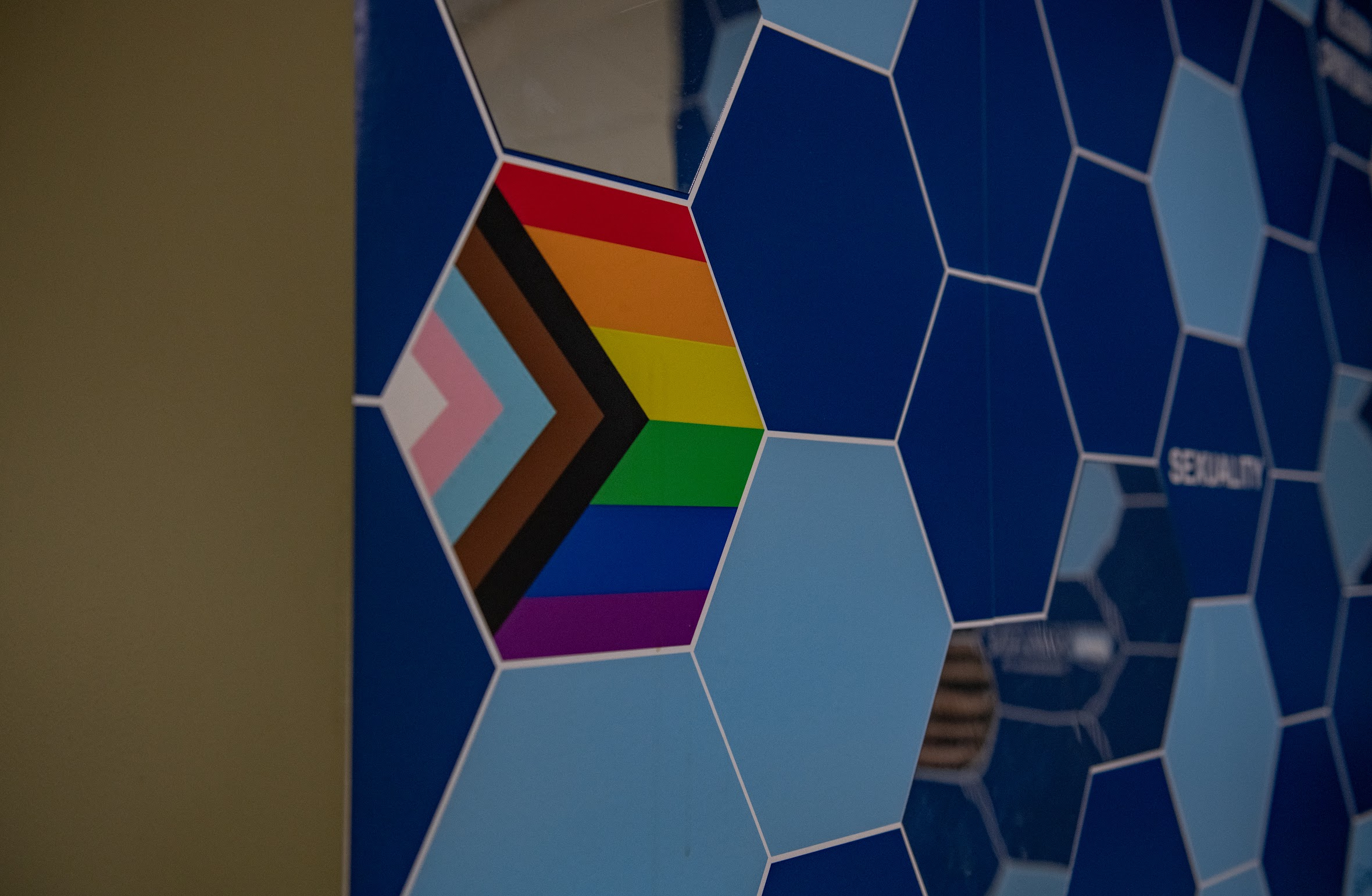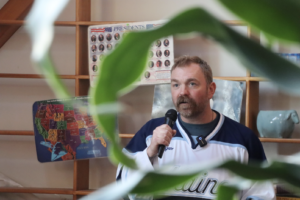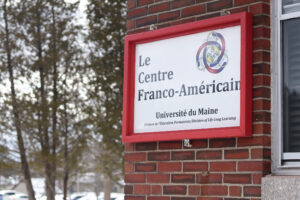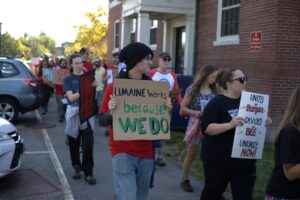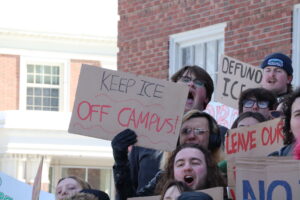The Supreme Court recently refused to reconsider its monumental 2015 decision to legalize same-sex marriage nationwide. While the refusal protects LGBTQ+ couples’ right to legally binding unions, some community members, while optimistic, remain concerned for other freedoms in the future.
Casper Cowan serves as President of Triota, the Women, Gender and Sexuality (WGS) studies honor society. He explained that social criticisms of the LGBTQ+ community are unavoidable because of homophobic and transphobic rhetoric. The focus must be on putting an end to legislation that imposes on human rights, regardless of sexual orientation or gender.
“What’s important about stopping legal attacks against the Queer community is that it sets a clear boundary between personal ideology and the state,” said Cowan.
WGS program director Elizabeth Neiman also offered her insights. She feels that the questions being raised about LGBTQ+ rights can lead to harmful legislation and that it’s important for everyone to remain aware, attentive and politically involved. However, Neiman is hopeful that such legislation is avoidable.
“It is a good sign that even in a conservative-leaning Supreme Court, there were not enough people willing to even review this,” said Neiman.
Jaxon Gamble, President of Wilde Stein – the UMaine Queer-Straight alliance organization – shared that he was not shocked to see the Respect For Marriage act challenged, adding that it was only a matter of time after the overturning of Roe v. Wade in 2022, which put abortion regulations back in the governance of individual states.
Gamble added that he expected the issue to be brought forward and that the true risk would be if powerful politicians pushed for it. On a positive note, he feels that harmful actions by the presidential administration, like the Diversity, Equity and Inclusion (DEI) ban, have tapered off to an extent.
“Now we’re almost at the one year point and we’re seeing kind of a shift,” said Gamble. “It’s not necessarily positive, not necessarily negative. I think we still have to remain vigilant but it definitely is easing.”
While WGS is an academic department, Neiman says that many students feel personally connected to the curriculum and consider the classes a safe space. The WGS framework can apply across disciplines at the university, with some courses currently crosslisted in other areas of study.
According to Cowan, the purpose of WGS as a field of study is often misconstrued based on assumptions about what it means to study gender and sexuality. In actuality, the department seeks to improve relations between people in diverse settings through education.
“We explore the complex relationships between bias, intersectionality, politics, human rights and so much more,” said Cowan. “WGS, as simply put, is the study of inequality and strives to reshape the world to be equitable.”
Neiman shared that there were concerns last year that WGS could lose funding as a result of national political changes, but that did not happen. She feels that it is becoming more apparent that the mission of the department is relevant to everyone, which has increased interest in the courses it offers.
“A lot of us in WGS worried last year that our program would be under pressure to change its curriculum or name,” said Neiman. “We’ve found, however, and I really want students to know, that this has not been the case. All signs suggest that the university is supporting our program.”
While Gamble considers the removal of DEI-based initiatives a loss of representation on campus, he is more concerned about healthcare, specifically gender-affirming treatment. Strict regulations are typically imposed on children seeking care, but Gamble worries that it could one day become inaccessible to all if programs are defunded entirely.
Chloe Edgar, electrical engineering student and member of Triota, believes that legislation against members of the LGBTQ+ community would make their lives unnecessarily difficult, and that gender-affirming care must be maintained.
“This healthcare really helps people and taking it away is going to cause a lot of harm,” said Edgar.
Gamble is not worried about threats to Wilde Stein as an organization because the group has been intertwined with campus culture for over 50 years. They provide a reliable safe space for students that encourages social interaction and comfort.
Wilde Stein is hosting a vigil for Transgender Day of Remembrance on Nov. 20 at 7 p.m. on the steps of Fogler Library.
“It is really important for people who are not trans to come to this event,” said Gamble. “It is to honor the lives that were lost to trans violence. I really think that it’s important this year, more than any year, for people to show up.”
Neiman expressed the importance of fighting for a cause collectively to bring about change, which she personally observed at a recent rally for transgender rights. By unifying people with similar experiences, it is easier to spread awareness and work toward a common goal.
